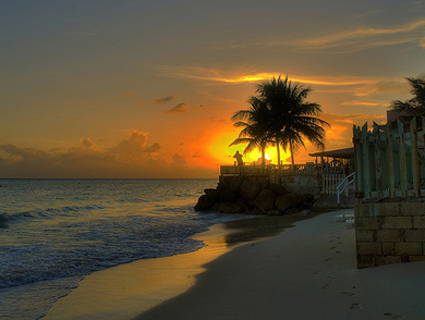
<a href="http://www.flickr.com/photos/ben124/6776546804/sizes/m/in/photostream/">Ben124</a>/Flickr
Small island nations are often painted as the victims when it comes to climate change, and for good reason. They’re the most vulnerable to sea level rise, and many have few options when it comes to internally relocating coastal residents. But, determined to play a role in deciding their fate, a group of small island countries have banded together to make their own energy use sustainable.
On Tuesday, 20 small island nations signed the Barbados Declaration, which affirms their commitment to “providing all households with access to modern and affordable renewable energy services, while eradicating poverty, safeguarding the environment and providing new opportunities for sustainable development and economic growth.”
It also affirmed the individual commitments those countries have made. Barbados, for example, has committed to cutting its carbon dioxide emissions 4.5 million tons by 2029. It plans to do so by drawing 29 percent of its energy from renewables and cutting energy use by 22 percent through efficiency measures. Prime Minister Freundel Stuart of Barbados said in a statement that the country believes the effort will also save them $283.5 million in energy costs.
Other island countries also made big commitments. The Maldives reaffirmed its plan to make the energy sector carbon neutral by 2020, which we’ve reported on before. Mauritius plans to to increase its share of renewable energy to at least 35 percent by 2025. And Seychelles plans to produce 15 percent of its energy from renewables by 2030.
Moving to renewables is a priority for small island states, not just because of the climate consequences, but also because their dependence on a fossil fuels is particularly burdensome. Nearly everything runs off imported oil, and have to have all their goods shipped in on giant, oil-guzzling tankers. As a result, they’re more vulnerable to price swings than the rest of us.











